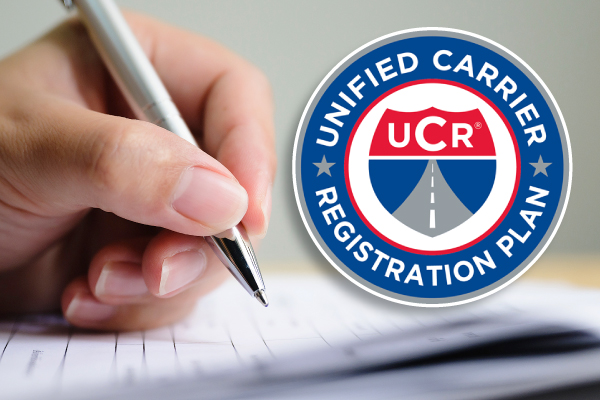The Unified Carrier Registration (UCR) program is an annual requirement that motor carriers, freight forwarders, brokers, and leasing companies must follow to stay legally compliant when operating across state lines. Failing to renew UCR on time can cause more than just financial setbacks—it can interrupt business continuity, lead to penalties, and even halt operations. We will explore the importance of timely UCR renewal and provide a structured breakdown of why carriers and companies should make this process a top priority. By understanding its role in keeping operations smooth and uninterrupted, businesses can save time, avoid stress, and continue to serve clients without disruption.
Why Timely UCR Renewal Matters for Continuous Operations
- Avoiding Costly Penalties and Fines
One of the most immediate consequences of not filing a UCR renewal is the risk of penalties and fines. States enforce UCR requirements differently, but most have strict measures in place that can be both costly and damaging to a carrier’s reputation. A missed renewal could mean unexpected roadside inspections, where an officer may identify the lapse in compliance, resulting in fines on the spot. Beyond the financial burden, these incidents can create delays, harm client relationships, and increase operational stress. Ensuring UCR is renewed before the deadline is a straightforward way to protect a company’s bottom line and keep drivers focused on the road rather than compliance issues. For businesses that rely on consistent cash flow and predictable expenses, staying ahead of UCR deadlines—and considering UCR filing adjustments for carriers when necessary—can prevent unnecessary costs that eat into profits.
- Maintaining Legal Authority Across States
UCR renewal ensures that carriers maintain the legal authority to operate across state lines. Without a valid UCR registration, a company may not legally transport freight in participating states. This restriction can be devastating for businesses whose operations depend on regional or national routes. Even a brief lapse could prevent trucks from entering certain jurisdictions, causing disruptions in schedules and client commitments. By renewing on time, carriers safeguard their ability to travel freely across state borders and continue serving contracts without interruption. This not only preserves operational efficiency but also reassures customers that the company takes compliance seriously. For a transportation business, legal authority is more than just a requirement—it is the foundation that supports reliable service and long-term partnerships.
- Protecting Business Reputation and Customer Trust
In logistics and transportation, reputation plays a critical role in maintaining long-term success. Clients expect timely deliveries, regulatory compliance, and smooth coordination. A lapse in UCR filing could result in delayed shipments, penalties, or even the suspension of operations, all of which reflect poorly on a company. Customers may question the reliability of a carrier that cannot maintain basic regulatory obligations. Renewing UCR on time shows professionalism and commitment, reinforcing trust with shippers and partners. It positions the business as reliable and dependable, which is especially important in an industry where competition is high and client relationships are built on confidence. By treating UCR renewal as a non-negotiable responsibility, businesses ensure they protect both their image and their long-term customer base.
- Reducing Administrative Stress and Roadside Hassles
One overlooked benefit of timely UCR renewal is the reduction of unnecessary administrative stress. Without proper filing, carriers may face roadside inspections, additional paperwork, or even delays in completing trips. These disruptions add stress to both drivers and managers, taking valuable time away from focusing on business growth and customer service. Renewing UCR ahead of time eliminates these avoidable obstacles and ensures a smoother operational flow. Carriers can move across state lines with confidence, knowing they have fulfilled all necessary requirements. By addressing UCR well before deadlines, companies also free up resources to handle other priorities like maintenance, route planning, and customer communication. In a business where efficiency is everything, minimizing administrative burdens through proactive compliance is a clear advantage.
- Supporting Long-Term Growth and Business Stability
UCR renewal is more than just a compliance task—it plays a role in supporting long-term business stability. A transportation company that consistently maintains its legal obligations positions itself for growth opportunities. Shippers and clients often prefer to work with carriers that demonstrate reliability in both operations and regulatory matters. Renewing UCR on time signals to potential partners that the business values accountability and compliance, making it easier to secure contracts and expand operations. Additionally, by staying compliant year after year, companies build a track record that supports credibility and future growth. This level of consistency is key to competing in a challenging market where every detail matters. UCR renewal may seem routine, but when treated as part of a larger growth strategy, it becomes a cornerstone for building a resilient and trusted transportation business.
Filing UCR renewal on time is not just a legal requirement—it is a strategic move that keeps cross-state operations running smoothly. From avoiding penalties and protecting legal authority to strengthening reputation and reducing administrative stress, timely renewal safeguards a company’s ability to deliver consistent service. For carriers and transportation companies, the message is clear: take UCR renewal seriously, file it early, and enjoy the peace of mind that comes with uninterrupted operations. By doing so, businesses secure their future while continuing to serve customers without disruption.














